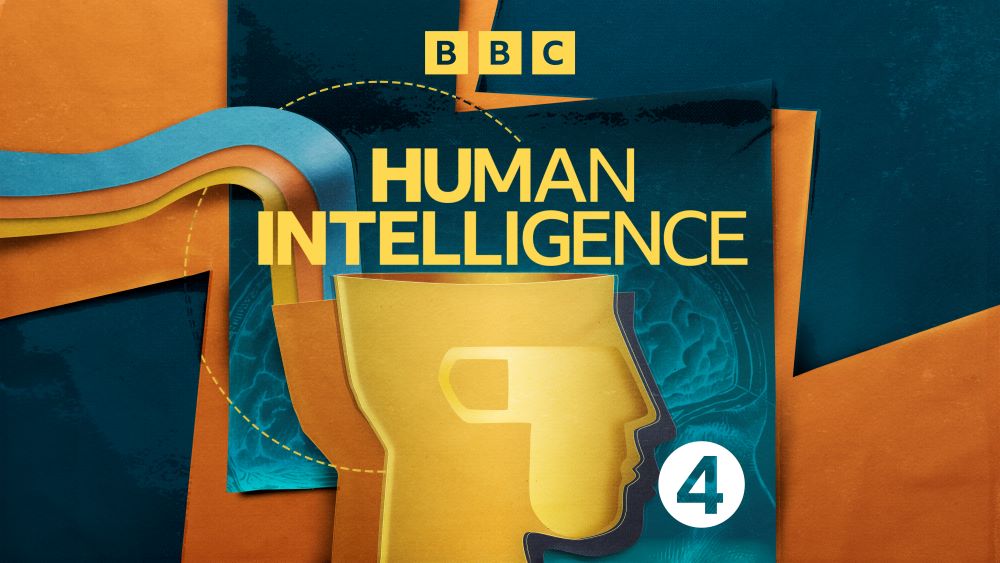OU News
News from The Open University
- Home
- BBC radio show shines a light on society’s deep thinkers
BBC radio show shines a light on society’s deep thinkers
Posted on • TV and radio

Academics from wide-ranging disciplines at The Open University are involved in the new BBC Radio 4 series Human Intelligence that examines the intellectual characters and methods of significant thinkers.
The programme airs today, Monday, 6 January at 1.45pm, when we hear novelist and science presenter Naomi Alderman dissecting the minds of outstanding thinkers from the past.
Each episode tells the story of how a brilliant mind came up with a brilliant idea. That might be Marie Curie discovering Radium, philosopher Immanuel Kant, chiselling out the categorical imperative, and Hugo Grotius thinking his way to the idea of Natural Law or perhaps Nikola Tesla, the engineer, futurist and inventor imagining, and then inventing, the AC induction motor.
Naomi examines the myriad ways in which humans think. Behind the scenes of this OU/BBC co-production, Professor Derek Matravers, Professor of Philosophy at The Open University, is one of the academic consultants for the programme.
People who dared to think differently
He said that rather than concentrating on the individuals’ works (whether ideas, literature, or something else) the programme looks at the context that facilitated the production of those works.
The first week of this brand-new series is all about disruptors – people who dared to think differently, including the founder of Western philosophy, ancient Greek historian Socrates himself; the woman who gave us the first feminist manifesto, Mary Wollstonecraft; and the icon and ever-changing thinker, African American revolutionary, Muslim minister and human rights activist Malcolm X.
Professor Matravers said:
“My favourite so far is a literary figure Samuel Johnson who was also a moralist and sermonist. Johnson was a deeply appealing person – very human in all his faults and foibles, and very humane.
“He was extremely funny, both sociable and not sociable, and intolerant of hypocrisy, pomposity, and all those other things that irritate the fair-minded person. He was not one to follow the crowd.”
Professor Matravers added:
“I don’t know if it was a guiding principle or just accidental, but several of the people we have gone for are famous for establishing a way of doing things which still guide us today.
“Some of these are lesser known: the ancient Greek historian Pamphila on a way of doing history and Peter Ramus, Humanist and philosopher, on establishing disciplines and inventing the textbook.
“The giant, at least in my world, is Socrates. The Socratic method is one of asking questions to elicit clarifications, qualifications, definitions, and so on, so as to follow where the argument leads and make progress to the truth.
“This remains hugely important and foundational to rational enquiry. Of course, the method is not always popular and often irritating and Socrates himself was put to death for his troubles.”
The programme is also available on BBC Sounds or listen to it live every weekday at 1.45pm.
This series was commissioned by Broadcast and Partnerships and is supported by the Faculty of Arts and Social Sciences with support from the Faculty of Science, Technology, Engineering and Mathematics, with particular relevance to R14 | BA (Hons) Arts and Humanities | Open University; Q45 | BA (Hons) Politics Philosophy and Economics; Q31 | BSc (Hons) Mathematics | Open University and Q64 | BSc (Hons) Natural Sciences | Open University.
- Commissioned by Dr Caroline Ogilvie, Head of Broadcast and Partnerships
- Academic Consultants – Professor Derek Matravers, Dr Richard Heffernan, Dr Mark Hintze, Dr Andrew James, Dr Brigitte Stenhouse, Dr Dan Taylor, Professor Naoko Yamagata
- Media Fellows – Dr Emily Bullock, Professor Zoe Walkington, Professor Andrew Norton and Dr Andrew Potter
- Broadcast Project Manager – Poppy Ross
- Digital Content Producer – Patrick Kearney
Supporting Online content:
Visit our Broadcast and Partnerships site OU Connect to discover a flipbook looking at the surprising and sometimes strange ways that some famous people come up with their most innovative ideas.